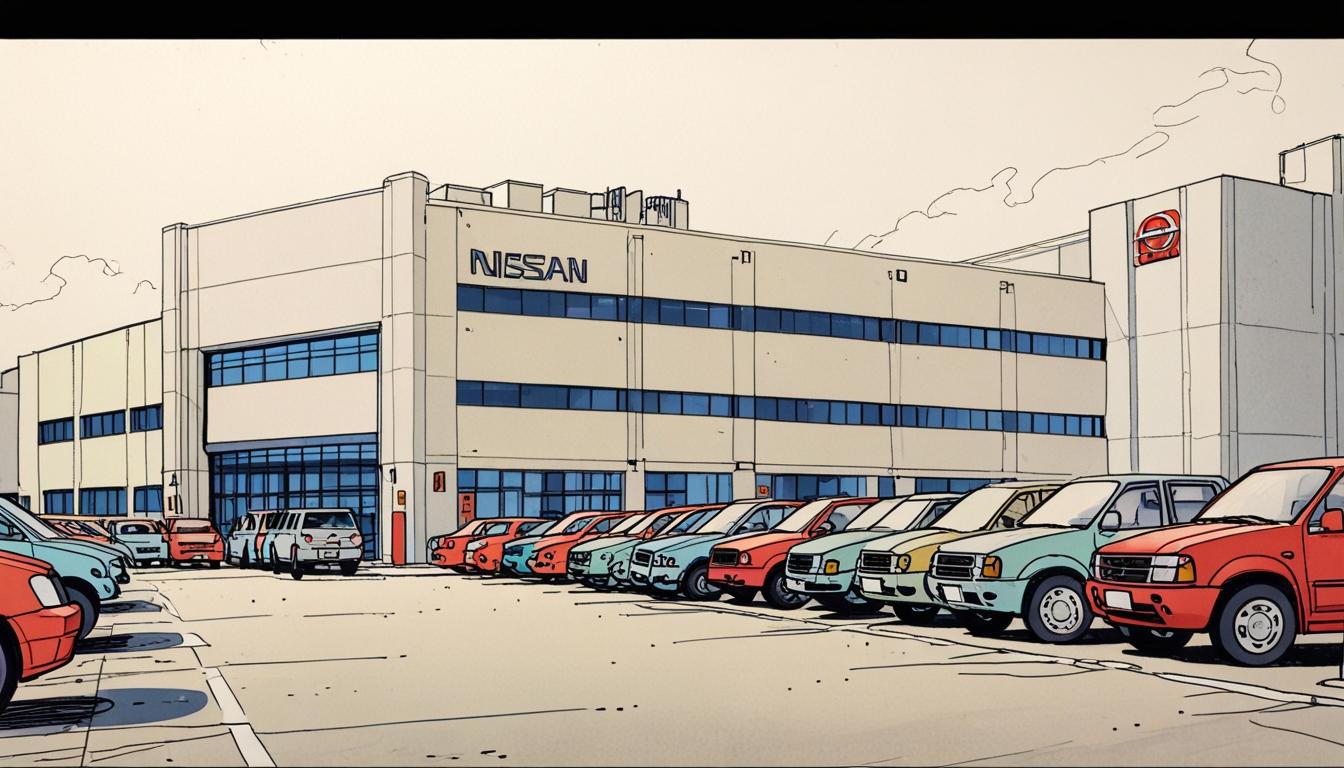Nissan Motor Co. is undergoing a significant transformation as it responds to mounting financial pressures, including a staggering net loss of approximately 670.9 billion yen (£4.04 billion) for the year ending March 2025. In a drastic restructuring effort, the company has announced the closure of seven manufacturing plants, leading to the loss of around 20,000 jobs worldwide. This decision, translating to a 15% reduction in its global workforce, marks a profound shift in the company’s operational strategy, which had previously emphasised sales volume over profitability.
Newly-appointed CEO Ivan Espinosa elaborated on this transformative vision, emphasising a pivot towards profitability that relies less on sheer volume. Presenting at a recent press conference, he stated, "In the face of challenging full-year 2024 performance and rising variable costs compounded by an uncertain environment, we must prioritise self-improvement with greater urgency and speed." This reflects a growing consensus that the traditional strategies employed by Nissan may no longer suffice in an increasingly competitive and economically unstable automotive market.
The closures will reduce Nissan's production sites from 17 to 10 by 2027, a restructuring move aimed at saving an estimated 500 billion yen (£2.6 billion). Moreover, as part of the new operational model, the company plans to streamline its supply chain by sourcing parts from fewer suppliers. This approach is expected to enhance efficiency and reduce costs, echoing industry-wide trends prioritising sustainability and cost-efficiency.
As part of this overhaul, Nissan has faced several external challenges exacerbated by political and economic factors. Tariffs introduced during the Trump administration have significantly affected profitability, adding an estimated 450 billion yen in costs for the current fiscal year. Furthermore, the company has faced declining sales, particularly in pivotal markets like the US and China, where competition is fierce. Analysts note that Nissan's long-standing focus on aggressive sales tactics, initiated under former chairman Carlos Ghosn, has led to an outdated vehicle lineup that struggles to meet evolving consumer expectations.
Furthermore, the halt of merger discussions with Honda, which sought to form a $60 billion partnership, has further destabilised Nissan's strategic outlook. Espinosa's leadership is now tasked with realigning company priorities and seeking new partnerships, potentially with Mitsubishi and other automotive firms, particularly in the U.S., to bolster production capabilities.
Despite these challenges, there are cautious signs of optimism. AESC, Nissan's battery supplier, has secured £1 billion in funding for a new electric vehicle battery plant in Sunderland, which is viewed as essential to the UK’s car industry's future. This aligns with Nissan's intent to ramp up electric vehicle production, particularly at its Sunderland factory, which currently stands as the only Nissan manufacturing facility in Europe.
In summary, as Nissan navigates these transformative changes, the path forward remains fraught with challenges. The company’s ambitious restructuring aims not only to recover profitability but also to forge a sustainable future amidst the pressures of tariffs, declining sales, and the necessity of evolving consumer demands in the automotive sector. The coming months will be critical in determining whether these strategic changes can revitalise Nissan’s fortunes and restore its standing in a rapidly changing automotive landscape.
Reference Map
- Paragraph 1: Sources [1], [2], [3], [4], [5], [6]
- Paragraph 2: Sources [1], [2], [6], [7]
- Paragraph 3: Sources [3], [5], [6]
- Paragraph 4: Sources [2], [3], [4], [6]
- Paragraph 5: Sources [1], [4], [5], [6], [7]
- Paragraph 6: Sources [1], [2], [4], [5], [6]
- Paragraph 7: Sources [1], [2], [3], [4], [5]
Source: Noah Wire Services
